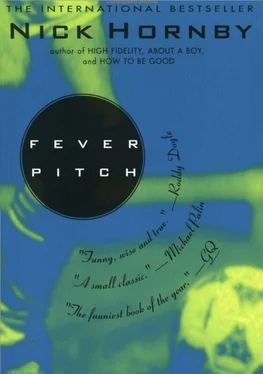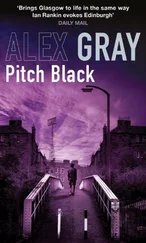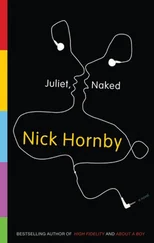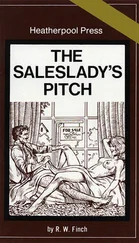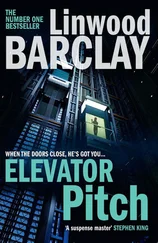I didn’t mention it to my uncle or to Michael—I didn’t want to patronise him by suggesting in any way that football fever was an illness that only afflicted children—but when we were making our way out of the ground I bade it a private and sentimental farewell. I’d read enough poetry to recognise a heightened moment when I saw one. My childhood was dying, cleanly and decently, and if you can’t mourn a loss of that resonance properly, then what can you mourn? At eighteen, I had at last grown up. Adulthood could not accommodate the kind of obsession I had been living with, and if I had to sacrifice Terry Mancini and Peter Simpson so that I could understand Camus properly and sleep with lots of nervy, neurotic and rapacious art students, then so be it. Life was about to begin, so Arsenal had to go.
ARSENAL v BRISTOL CITY
21.8.76
As it turned out, my coolness towards all things Arsenal had had nothing to do with rites of passage, or girls, or Jean-Paul Sartre, or Van Morrison, and quite a lot to do with the ineptitude of the Kidd/Stapleton strikeforce. When Bertie Mee resigned in 1976, and his replacement Terry Neill bought Malcolm Macdonald for £333,333 from Newcastle, my devotion mysteriously resurrected itself, and I was back at Highbury for the start of the new season, as stupidly optimistic for the club and as hungry to see a game as I had ever been in the early seventies, when my obsession had been at fever pitch. If I had been correct in assuming previously that my indifference marked the onset of maturity, then that maturity had lasted just ten months, and by the age of nineteen I was already into my second childhood.
Terry Neill was nobody’s idea of a saviour, really. He had come directly from Tottenham, which didn’t endear him to some of the Arsenal crowd, and it wasn’t even as if he had done a great job there: he had only just avoided taking them into the Second Division (although they were destined for the drop anyway). But he was a new broom, at least, and there were some pretty cobwebbed corners in our team; judging from the size of the crowd for his first game in charge, I was not the only one who had been lured back by the promise of a new dawn.
In fact, Macdonald and Neill and a new era were only partly responsible for my return to the fold. Over the previous few months I had managed to turn myself into a schoolboy again, and I had done it, paradoxically, by leaving school and getting a job. After my university entrance exams I went to work for a huge insurance company in the City; the idea, I think, was to take my fascination with London to some kind of conclusion by becoming a part of the place, but this proved harder to do than I had imagined. I couldn’t afford to live there, so I commuted from home (my salary went on the train fares and drinks after work), and I didn’t even get to meet that many Londoners (although as I was fixed on the notion that real Londoners were people who lived in Gillespie Road, Avenell Road or Highbury Hill, N5, they were always going to be elusive). My workmates were for the most part like me, young commuters from the Home Counties.
So instead of turning myself into a metropolitan adult, I ended up recreating my suburban adolescence. I was bored witless most of the time, just as I had been at school (the company was about to relocate to Bristol, and we were all woefully underemployed); we sat, scores of us, in rows of desks trying to look busy, while embittered supervisors, denied even the minor dignity of the tiny cubicles in which their bosses worked, watched us like hawks and reprimanded us when our timewasting became too conspicuous or noisy. It is in climates like this that football flourishes: I spent most of the long and lethally hot summer of 1976 talking about Charlie and the Double and Bobby Gould to a colleague, a dedicated and therefore somewhat wry fellow fan who was about to become a policeman just as I was about to become an undergraduate. Before very long I could feel some of my old enthusiasm beginning to re-exert its fierce grip.
Serious fans of the same club always see each other again somewhere—in a queue, or a chip shop, or a motorway service station toilet—and so it was inevitable that I would meet up with Kieran again. I saw him two years later, after the ’78 Cup Final: he was sitting on a wall outside Wembley waiting for some friends, his banner drooping miserably in the post-match gloom, and it wasn’t the right time to tell him that if it hadn’t been for our office conversations that summer, I probably wouldn’t even have been there that afternoon, feeling as miserable as he looked.
But that’s another story. After my first game back, against Bristol City, I went home feeling as though I’d been tricked. Despite the introduction of Malcolm Macdonald, whose imperious wave to the crowd before the game led one to suspect the worst, Arsenal seemed no better than they had been for the last couple of years; in fact, given that they lost 1-0 at home to a Bristol City side which had crept up from the Second Division to struggle for four years in the First, it could well be argued that they were a good deal worse. I sweated in the August sunshine, and I cursed, and I felt the old screaming frustration that I had been happily living without. Like alcoholics who feel strong enough to pour themselves just one small one, I had made a fatal mistake.
ARSENAL v EVERTON
18.9.76
On one of my videos (George Graham’s Greatest Ever Arsenal Team , if anyone is interested), there is a perfect Malcolm Macdonald moment. Trevor Ross gets hold of the ball on the right, crosses before the Manchester United left-back can put a challenge in, Frank Stapleton leaps, nods and the ball trundles over the line and into the net. Why is this so quintessentially Supermac, given his lack of involvement in any part of the goal? Because there he is, making a desperate lunge for the ball before it crosses the line, apparently failing to make contact, and charging away to the right of the picture with his arms aloft, not to congratulate the goalscorer but because he is staking a claim to the goal . (There is an anxious little glance back over his shoulder when he realises that his team-mates seem uninterested in mobbing him.)
That Manchester United match is not the only example of his embarrassing penchant for claiming anything that came anywhere near him. In the FA Cup semi-final against Orient the following season, the record books show that he scored twice. In fact, both shots would have gone off for throw-ins—that is to say, they were not travelling even roughly in the direction of the goal—had they not hit an Orient defender (the same one each time) and looped in a ridiculous arc over the goalkeeper and into the net. Such considerations were beneath Malcolm, however, who celebrated both goals as if he had run the length of the field and beaten every defender before thumping the ball into the bottom left-hand corner. He wasn’t much of a one for self-irony.
During this game against Everton, which we won 3-1 (a result which led us all to believe, once more, that a corner had been turned and that Terry Neill was building a team capable of winning the League again), there was another gem. Macdonald is in a chase with the centre-half, who gets a foot in, and lifts the ball agonisingly over his own advancing goalkeeper; but immediately Macdonald’s arms are in the air, he is pounding towards us on the North Bank, he turns to acknowledge the joy of the rest of the team. Defenders are famously quick to disclaim an own goal if it is possible, but the Everton centre-half, staggered by his opponent’s cheek, told the newspapers that our number nine hadn’t got anywhere near the ball. Even so, Macdonald got the credit for it.
Читать дальше
